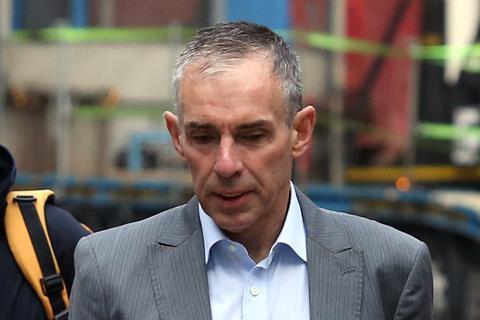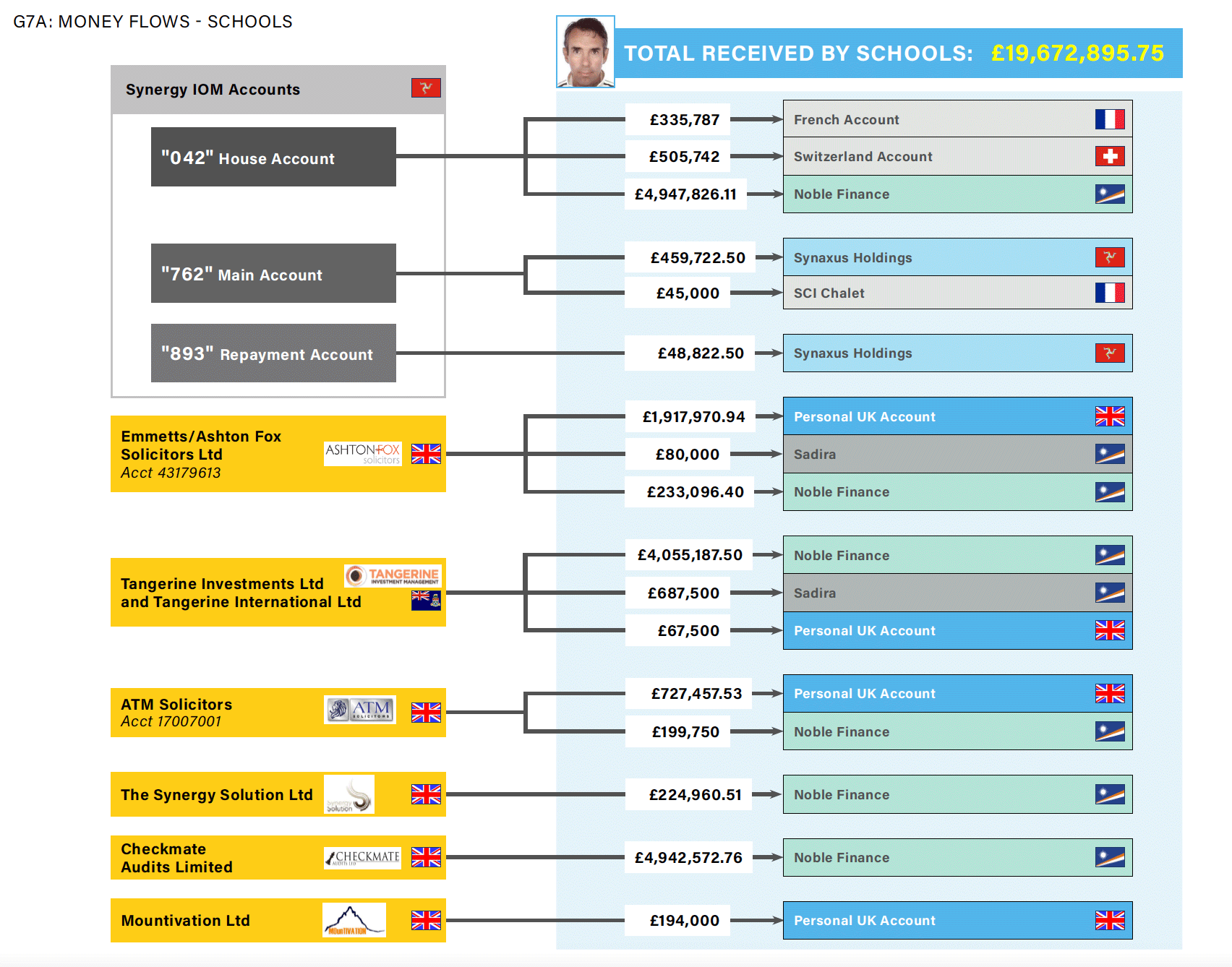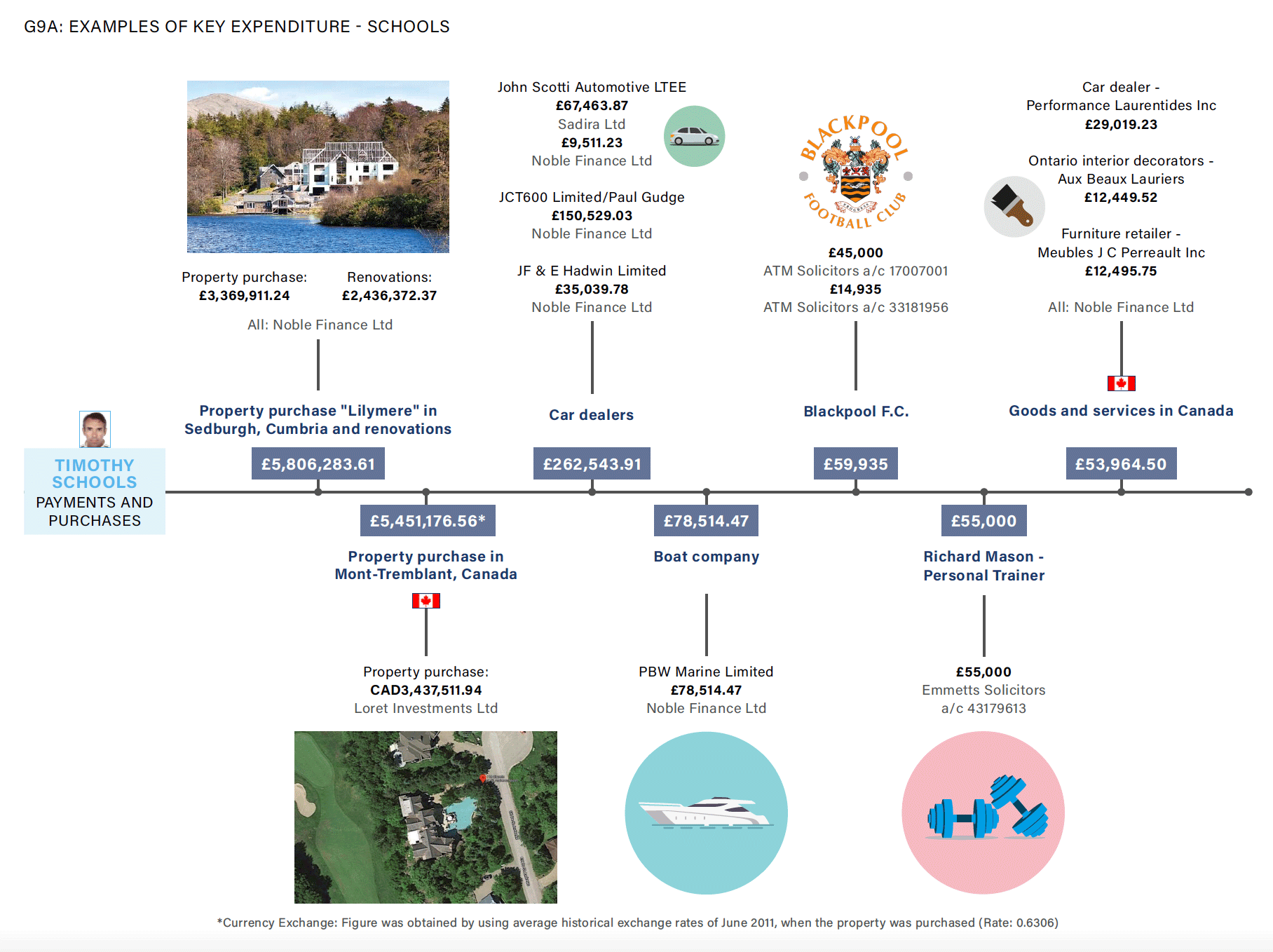The Axiom Legal Financing Fund was set up to provide funding to law firms pursuing no-win no-fee claims and marketed to investors as offering a return of up to 11% a year, with an impressive-sounding 95% projected case success rate.
It attracted hundreds of investors who put in a total of more than £100m on the promise that the fund, which started trading in 2009, was a ‘win-win’. Either the cases were won, and the fund was repaid; or they were lost and the insurance would cover the costs.
But the reality was very different. The Cayman Islands-registered fund collapsed in October 2012 shortly after auditors discovered that one law firm that owed £60m would be able to repay only £65,000. Investors lost everything.
The Axiom fund was the brainchild of Timothy Schools, an ‘utterly dishonest’ former police officer turned solicitor. He was today jailed for 14 years for his ‘egregious and persistent offending’, which saw him pocket nearly £20m of investors’ cash to fund his luxury lifestyle.
Schools, 61, was found guilty of three counts of fraudulent trading, one count of fraud and one count of transferring criminal property at Southwark Crown Court after jurors deliberated for more than 28 hours. He used the ill-gotten gains to buy a £5m estate in Cumbria – complete with a 36-acre lake, featuring foot-long brown trout, and a ‘pheasant shoot’ – property in Canada, shares in a French ski resort, a boat and a corporate box at his beloved Blackpool FC’s home ground, Bloomfield Road.

The scheme was fraudulent ‘more or less from the start’, Judge Martin Beddoe said, with the Axiom fund in its first year making loans only to Schools’ Preston-based ATM Solicitors, so-called because he used it as ‘his personal cash machine’.
Around £40m of investors’ money was paid to just three firms, all of which Schools either owned or held an undisclosed interest in, and cash was siphoned off to pay for his salary and ‘consultancy fees’.
Schools began ‘hiding the ill-gotten gains’ shortly after he was contacted by an investigative journalist in July 2012, jurors heard. He moved almost £5m to his offshore company in the Marshall Islands in the space of just two months.
His legal career ended in 2014 after he was struck off over charges relating to Axiom, including failing to act in his clients’ best interests and allowing third parties to exercise ‘an inappropriate level of control’ over ATM Solicitors – a fact which was not before the jury at trial.
But the court did hear that Schools was sanctioned by the Solicitors Disciplinary Tribunal before he was struck off, for being ‘not sufficiently independent to act in the best interest of his clients [having] gained financially from fees paid to companies of which he was a director’.
Jurors were also told that Schools was forced to resign from Lancashire Police in 1991 for being absent from duty without leave, and failing to give written notice of his interest in an off-licence, having previously been reprimanded for doing a 180km bike race while off sick.
Schools nonetheless committed an ‘enormous abuse of trust and responsibility’ towards investors and did not show any remorse, providing only ‘self-serving justifications for all that has happened’, the judge said.
Beddoe added that Schools, of Penrith, Cumbria, is an ‘utterly dishonest man and that characteristic … has regrettably run through you for a very long time’.
Prosecutor Paul Raudnitz QC, for the Serious Fraud Office, earlier said the Axiom fund lost more than £100m and that as many as 35,000 clients’ cases were affected by his fraud.
The judge told Schools that ‘you always saw this as a “get rich quick” scheme’ adding that Schools had made sure he could ‘cream off as much and as quickly as you could’.
‘I have no doubt that as far as you are concerned … you really did not care whether the litigation succeeded or not,’ said the judge, adding: ‘You were the prime mover and instigator of all of it.’
Schools was also banned from being a company director for 15 years and faces confiscation proceedings in due course – though his barrister George Carter-Stephenson QC said Schools, whose assets have all been ‘handed over to creditors’, will leave prison ‘to nothing’.
Carter-Stephenson argued that ‘at the outset this was not a dishonest scheme’. Schools said in his evidence that he set up the Axiom fund to fill ‘the big black hole in the market’ after access to legal aid was reduced.
But Beddoe said that it was ‘fraud effectively from the outset … [from] the commencement of the Axiom fund’ and told Schools that he was ‘personally to blame’ for investors’ losses.
SFO director Lisa Osofsky said in a statement: ‘Mr Schools deliberately abused his position of trust to enrich himself. Through a complex web of lies, he attempted to hide his fraudulent activity while spending other people’s hard-earned money.’
Schools’ co-defendant and fellow former solicitor Richard Emmett, 49, of Grimsargh, Lancashire, was acquitted of one count of fraudulent trading and one count of facilitating the use of criminal property.
Emmett’s solicitor Paul Schofield, a partner at north-west firm Farleys, said: ‘Richard and his family have had to endure enormous stress for almost five years. He has always protested his innocence, he has vigorously defended these proceedings and has now, at last, been vindicated by the correct verdicts returned by the jury and is delighted with the result.’
Jurors were unable to reach a verdict in relation to a single count of fraudulent trading against former financial adviser David Kennedy, 69, of Hetton-le-Hole, Tyne and Wear, and were discharged. A hearing is due to take place next month to consider any potential application for a retrial.






























